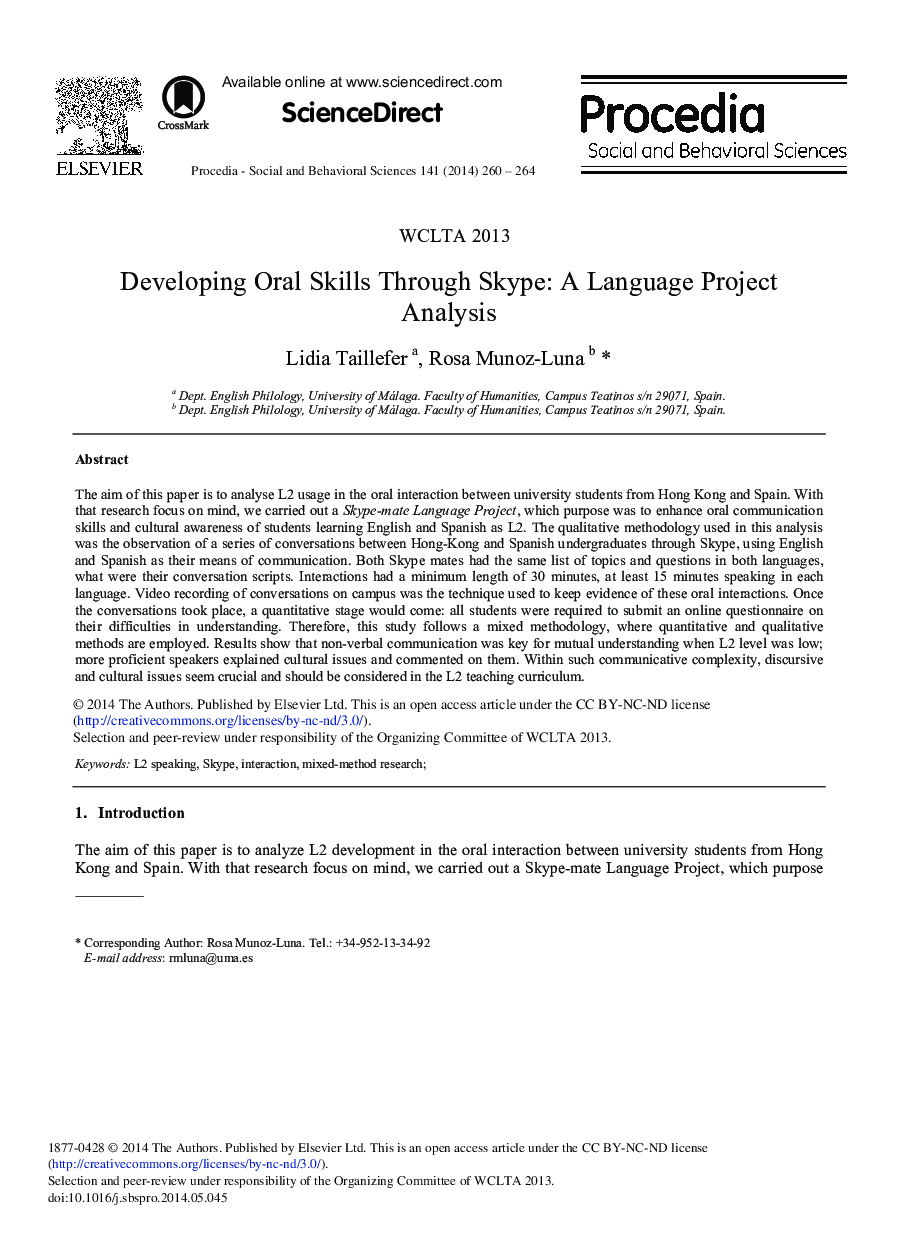| Article ID | Journal | Published Year | Pages | File Type |
|---|---|---|---|---|
| 1113240 | Procedia - Social and Behavioral Sciences | 2014 | 5 Pages |
The aim of this paper is to analyse L2 usage in the oral interaction between university students from Hong Kong and Spain. With that research focus on mind, we carried out a Skype-mate Language Project, which purpose was to enhance oral communication skills and cultural awareness of students learning English and Spanish as L2. The qualitative methodology used in this analysis was the observation of a series of conversations between Hong-Kong and Spanish undergraduates through Skype, using English and Spanish as their means of communication. Both Skype mates had the same list of topics and questions in both languages, what were their conversation scripts. Interactions had a minimum length of 30 minutes, at least 15 minutes speaking in each language. Video recording of conversations on campus was the technique used to keep evidence of these oral interactions. Once the conversations took place, a quantitative stage would come: all students were required to submit an online questionnaire on their difficulties in understanding. Therefore, this study follows a mixed methodology, where quantitative and qualitative methods are employed. Results show that non-verbal communication was key for mutual understanding when L2 level was low; more proficient speakers explained cultural issues and commented on them. Within such communicative complexity, discursive and cultural issues seem crucial and should be considered in the L2 teaching curriculum.
